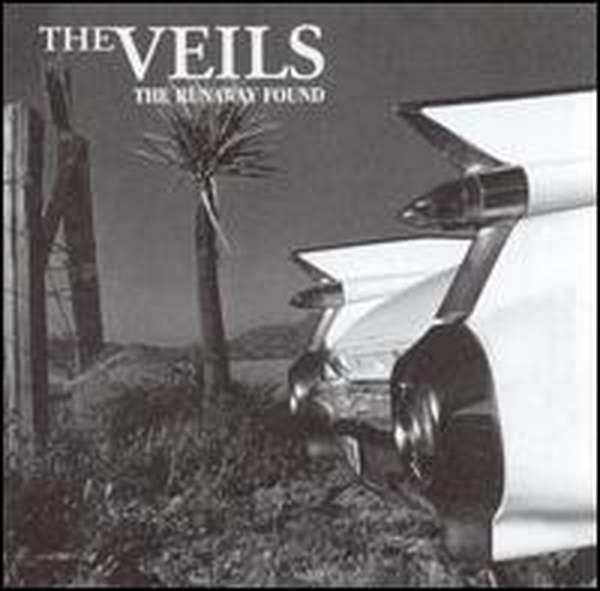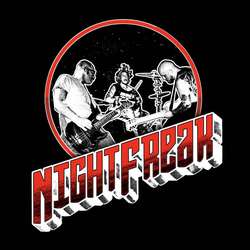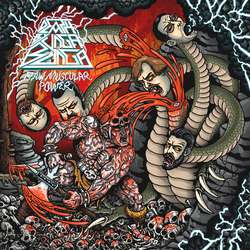Finn Andrews, the vocalist and guitarist of the Veils, once posed alone in front of a cemetery. The building behind the cemetery was grey, old, and had shingles flaking off the roof. The grass was an unsightly shade between jaundice yellow and moss green. There was a tree looming above the scene was bare and angular. Andrews fit right in with the bleak scene, looking like Death itself. His ghostly pale skin was stretched tightly against his thin frame, while his lips were an unnatural magenta color. His hair was covered by a deep red headscarf, a deep red that would result if his heart was being torn out and blood was splattered on a white headscarf. He was sitting on a black guitar case that had an ironic eye-catching sticker with red lettering that read "Do not drop. FRAGILE. Handle carefully." There were three other members in the Veils, but the peculiar thing at the photo shoot was that they were nowhere to be found. Recently, Andrews announced members Adam Kinsella (bass), Oli Drake (guitar), and Ben Woollacott (drums) will not return to record the Veils' sophomore album.
The departure of the band is not that surprising, because this young man thrives on his loneliness. Just pummel Andrews' heart, like Berenice and Lavinia, into a bloody pulp and this boy will be one prolific songwriter or a very broken songwriter. As the son of XTC's Barry Andrews, Finn Andrews' musical ability seems to be genetic on the Veils' debut, The Runaway Found. From the jangly pop of "Guiding Light" and "The Tide that Left and Never Came Back" to the solemn songs "Lavinia" and "The Nowhere Man," there are traces of a budding talent.
The lyrics are eloquently crafted, although none of them contain high vocabulary terms. Andrews is a well-read young man who probably lives in the stories that he reads. He makes a reference to Greek Mythology's Elysian Fields in "The Wild Son" and takes his song "The Nowhere Man" from C.S. Lewis' The Horse and His Boy. I had to look up what the Elysian Fields (a place of serenity and contentment) are in Encarta and I just read the credits in the booklet about the C.S. Lewis connection. Lavinia is also a Greek Mythological figure according to a quick search on Google, but the reference may or may have not been intentional. The album is probably riddled with references to literature, but I cannot decipher them.
A smooth melody presents a carefree tone in "The Wild Son," but the lyrics convey otherwise: "your knives are sharp/when you put them in my heart/though the truth, you'd say/is I like them there that way." The faux gospel "Guiding Light" has distressing lyrics as Andrews sings, "there goes my guiding light/farewell my guiding light" in a whirl of guitar notes and beats. The string arrangements are clandestine under the layers of guitars in "The Wild Son," compared to the soaring strings in "Lavinia." There is this one blissful point in "Lavinia" when drums become faster and the strings quickly scale up the notes.
The Veils get as rocking as they can in "More Heat than Light," with heavier guitars and more pounding beats. "The Tide That Left and Never Came Back" is one of the few upbeat sounding songs; however it is on Andrews' favorite subject, his loneliness. The gloomy tones, dulcet notes, and obsession of a city in the piano-based "The Valleys of New Orleans" remind me of Ryan Adams (in my opinion, Adams has a better voice). "The Nowhere Man" is a beautiful soothing acoustic guitar song accompanied with lovely string arrangements to close a moody album.
A new line-up for the next album has not been announced yet, but as long as Andrews can still draw up some pain, the future of the Veils will be bright. Andrews' voice was a little too nasal for the first listen, but after a couple of songs his voice became an important component in each song. For their next album, I better read some more literature so I can be prepared for Andrews' lyrics.




